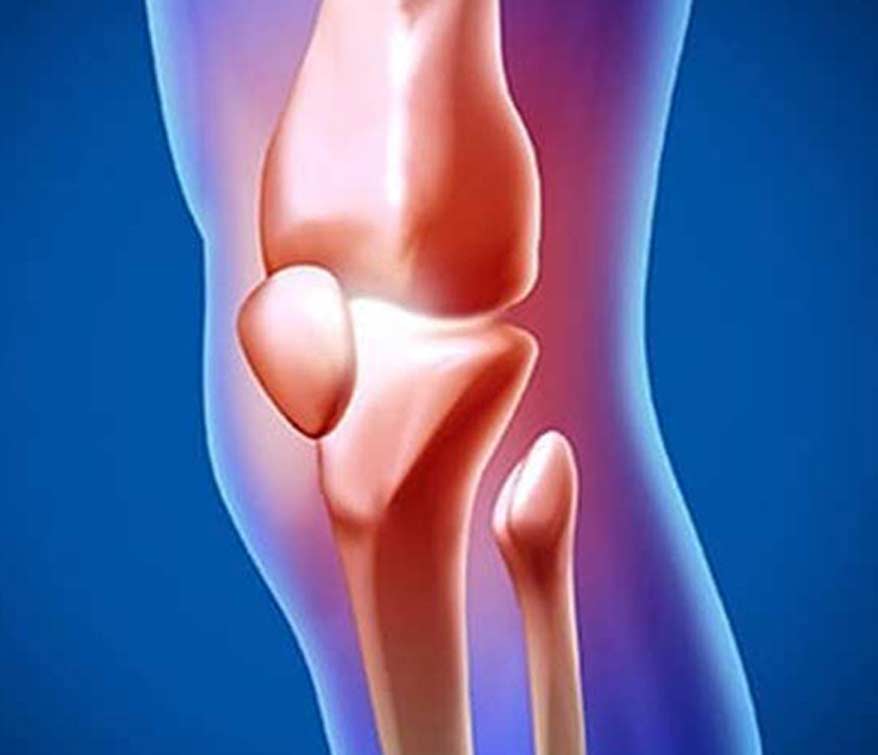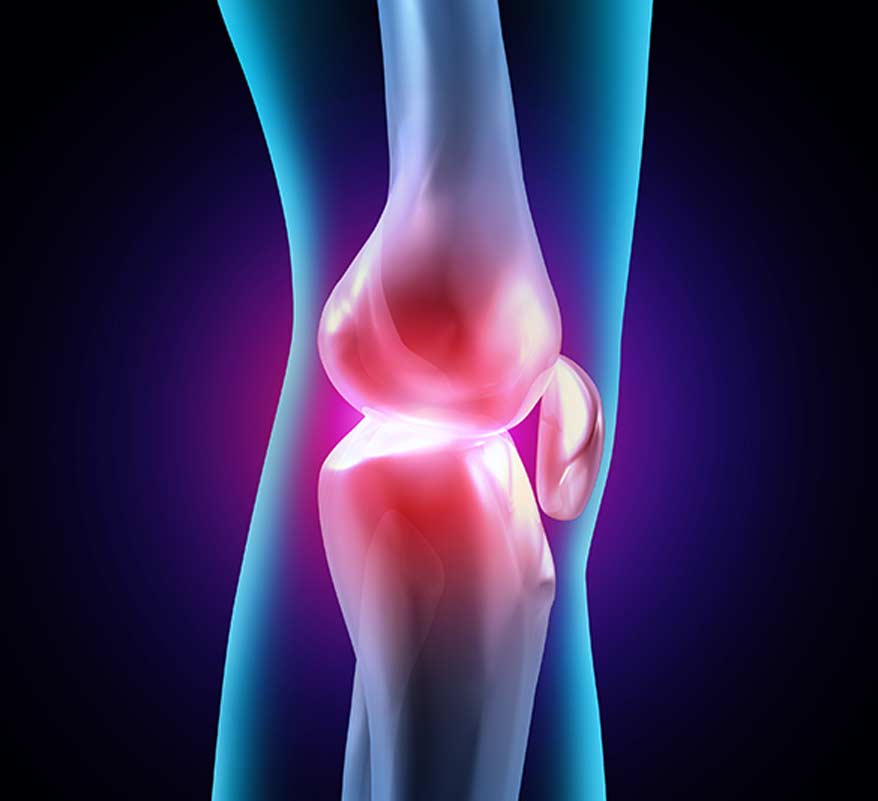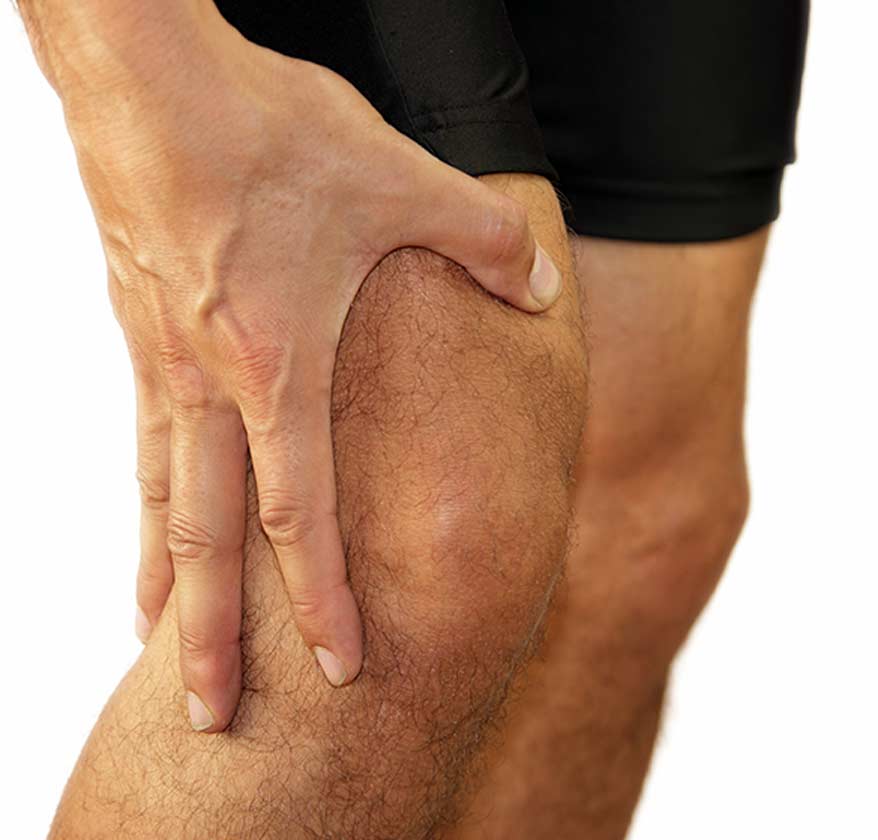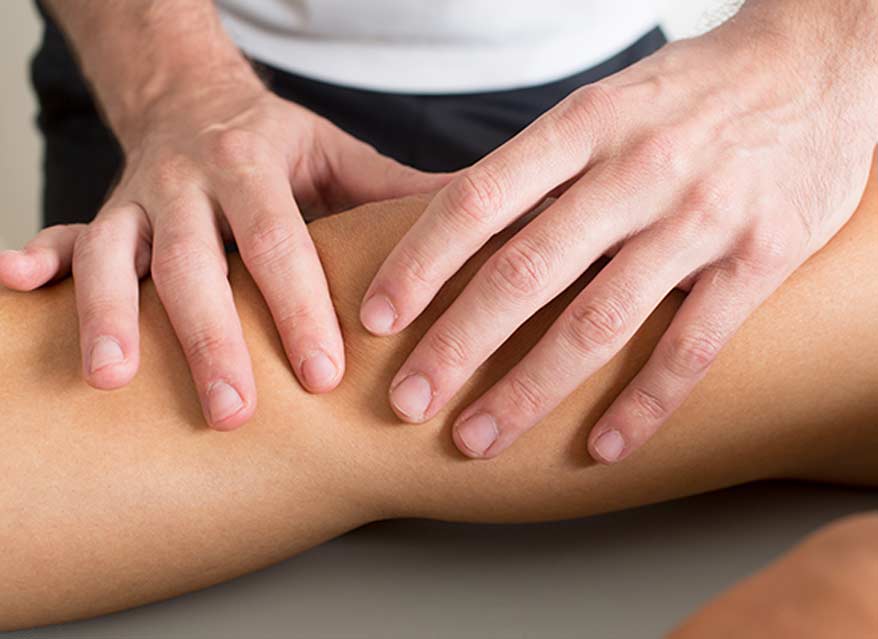Learn about how our knee doctor can help you.
Your knees absorb a lot of shock and impact when you complete regular daily activities, and this is especially true if you take part in sports or other strenuous activities. As a knee doctor in Orange County, your surgeon at Orange County Orthopedic Center is able to:
- Sufficiently diagnose and treat knee problems
- Provide you with thorough pain relief
Common Knee Problems
In general, it is a good idea to see your knee doctor in Orange County at the sign of any knee issues. That’s because any type of discomfort in your knee can be the result of an underlying orthopedic issue, including problems elsewhere in your body. For example, hip problems and sciatica can cause pain in the knee.
You should contact our office if you have knee problems that persist, or if you have a sudden onset of symptoms such as difficulty walking, redness, swelling, weakness, lack of mobility, tenderness, pain, or if your knee is warm to the touch. Generally, if your knee issues interfere with any of your activities or sleep, you should schedule an appointment. You shouldn’t have to make lifestyle changes to adjust to pain or discomfort.
If you’ve injured your knee in any type of physical activity, try icing it for 20 minutes at a time to reduce swelling. Then, contact our office to find out if your injury is something minor that will resolve on its own or if it needs more attention.


How are knee problems diagnosed?
The steps that are needed to diagnose knee problems depend on the symptoms involved. In some cases, a physical examination and consultation will tell your knee doctor in Orange County all that he needs to know. Your doctor will ask you questions about your pain, such as when it started, what you believe the cause to be, and if there are any movements that make it better or worse. You will also answer questions about your medical history. Your doctor will check your knee’s flexibility, strength, reflexes, and range of motion to get a better idea of what your problem could be.
In some cases, imaging tests like MRIs and x-rays are needed to diagnose knee problems. These tests can be used to rule out some possibilities and also to see the extent or severity of your injury or condition.
A correct diagnosis is very important when it comes to finding the right treatment for you. If your diagnosis is wrong or incomplete, it could mean that you waste time on treatments that will not work well, or even approaches that could lead to more harm. For a proper diagnosis, be sure to cooperate as much as possible with your knee doctor and provide any information that you think could be helpful. By working together, you should be able to reach a diagnosis quickly.
How are hand problems diagnosed?
Often, having a physical examination performed by your hand doctor in Orange County is all that will be needed in order to diagnose a hand problem. At our orthopedic center, your doctor will ask you questions about your medical history and about the pain you are experiencing, such as when it started, what you think the cause could be, and if there are certain movements or activities that make the pain better or worse. Your doctor will also check your range of motion, strength, and reflexes to try and further pinpoint the problem.
Imaging tests like MRIs and x-rays are sometimes needed to find out how severe your condition or injury is, or to help rule out some possibilities and land on a diagnosis if there isn’t enough information obtained during a simple examination.
The consultation and diagnosis stage of your care is very important, because it is the first step in finding relief. If you do not have a proper diagnosis, you may end up trying treatment approaches that are not effective for you. That’s why cooperating with your doctor is necessary. Be sure to mention any information that you think could be helpful for your diagnosis. By working together with your doctor, you will be able to find the right treatment and then resume your regular activities more quickly.


Can I treat knee problems at home?
Your knee doctor in Orange County may have some suggestions for things you can do at home to help relieve your knee pain. One of the most common home treatment methods is R.I.C.E. (rest, ice, compression, and elevation). This method is especially helpful following a knee injury and can help to reduce pain and swelling.
Your doctor might also suggest different exercises and stretches that you can try at home to build up your strength and improve your range of motion. For some knee conditions or injuries, wearing a knee brace or compression sleeve can help keep your knee stable and with less pain
In most cases, home treatment methods are meant to be used in conjunction with in-office treatments. It’s very important to follow your doctor’s full recommendation for treatment. Choosing to follow only one suggestion out of a handful can mean that your knee is not getting the full support and attention that it needs to heal, which can lead to more problems later on.


